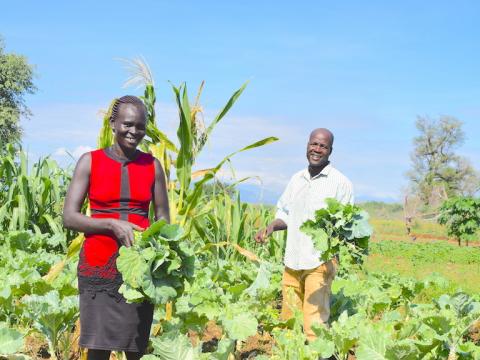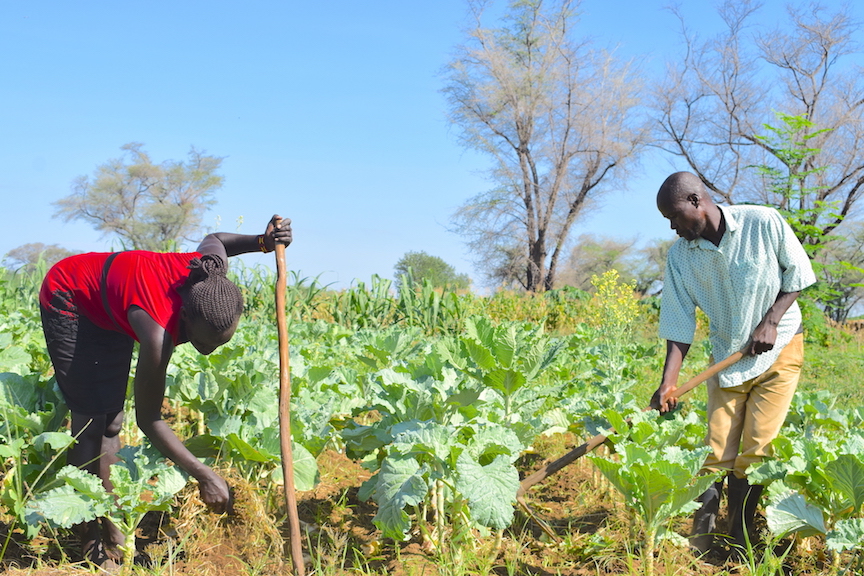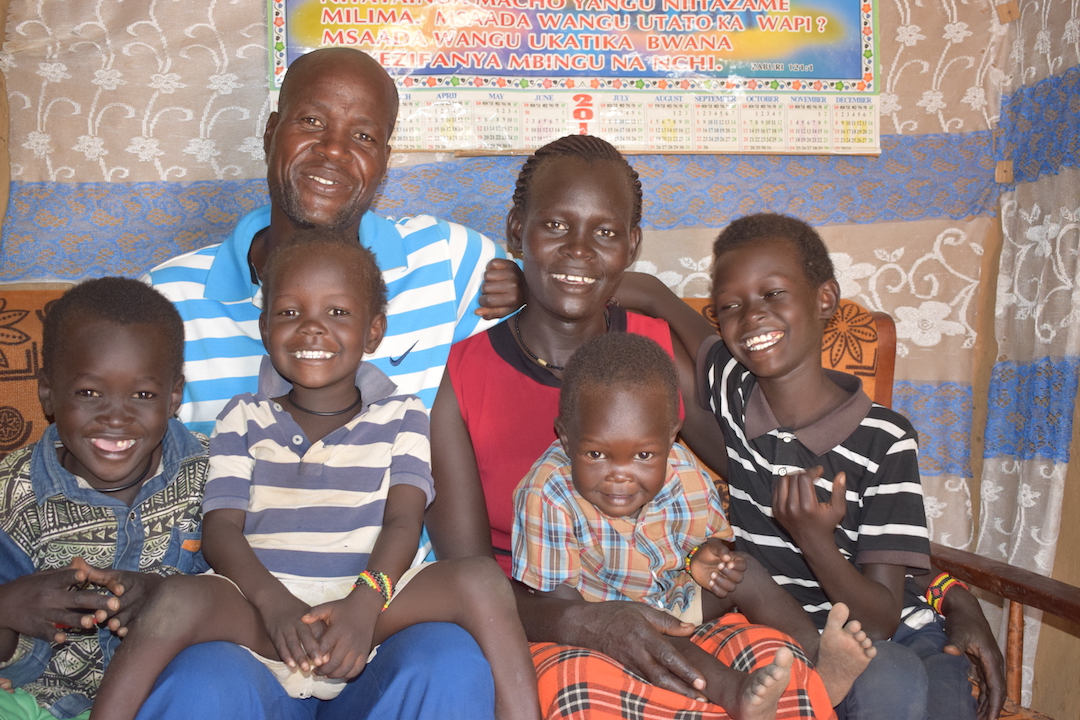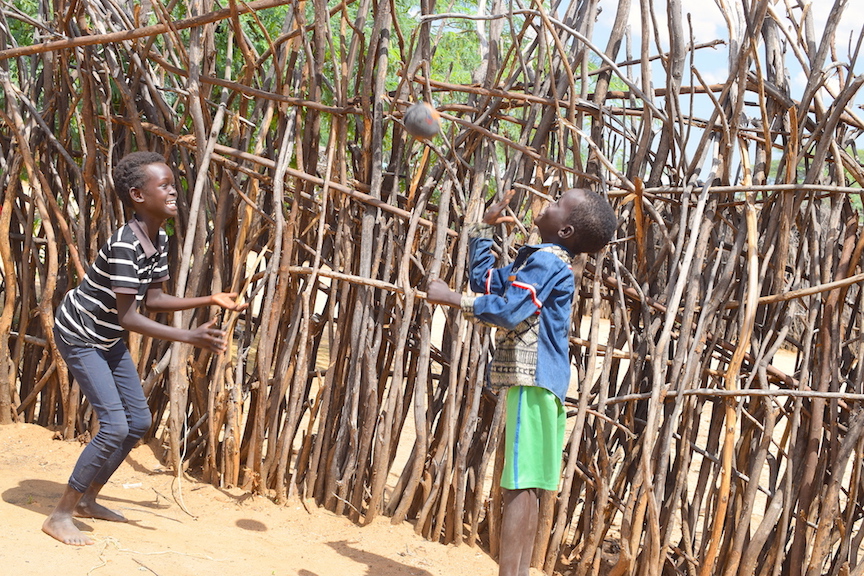Pastoralists embrace dry land farming to fight drought and boost food security

By Sarah Ooko, World Vision Senior Communications & Media Officer, Kenya
The terrain in Turkana County is mostly dry and rocky. Loose soils, devoid of ground vegetation fill the sparsely populated land, which is dotted with mud-thatched huts and manyattas (concave-shaped traditional houses) made of dry twigs.
In addition, the area has harsh climatic conditions, characterised by extremely high temperatures and minimal rainfall that has made crop farming in the area difficult.
As such, the Turkana people are mainly pastoralists who rely on livestock keeping as their main source of livelihood. Communities often walk for long distances in search of water and pasture for their livestock.
The men can travel for days to look for feeds for their cattle, while women and children remain behind to take care of goats that feed on thickets or bushes near homesteads.
Land degradation caused by overstocking as well as frequent dry spells that are exacerbated by climate change - such as the current drought - are increasingly making this way of life difficult.
"Before, we used to easily get pasture and water for our livestock. But now it's hard. We've been experiencing long dry spells and so much heat from the sun that kills vegetation and causes our water bodies to dry up, says Mark, a resident of Kainuk in Turkana County.
World Vision sought to address this challenge through the implementation of water projects and training on climate-smart agriculture that enabled the community to diversify their livelihoods instead of relying solely on livestock.

"We never used to grow crops but after the training, we began doing so and we are enjoying it. The water points established near our farms enable us to irrigate our crops all year round and enjoy bumper harvests irrespective of the hot weather here," says Mark, a father of four.
World Vision in collaboration with the Turkana County Government supported Mark and other farmers to acquire high quality seeds and learn about best farming practices such as crop rotation, spacing plants, pest control and keeping the soil fertile through the use of manure.
"Since we still have livestock, we can easily get cow or goat manure which has enabled us to cut on fertiliser costs and make savings," he says.

Compared to livestock keeping, he notes that crop farming is less tiring and more profitable.
"I used to walk for long looking for pasture for my livestock and it would take long for them to be mature and ready for the market. But with crops, once you do the planting and irrigation, you wait for a few months to harvest and sell the produce, he says.
Jacinta, his wife, notes that embracing crop farming has enabled them to have more family time.
"My husband used to be away for months, moving with cows from one place to another in search of pasture and water. And back home, the children and me would tend to goats, collect water many kilometres away and do other house chores. We used to be tired all the time. The children would miss school sometimes and they didn't have enough time to play with friends," she says.

Now Mark seldom leaves home as he keeps a few goats and cows that he can comfortably take care of. With the increased access to water and proceeds from crop farming, he can easily grow fodder or purchase it during the dry seasons.
"By combining crop farming and livestock farming, we are also able to give children a balanced diet that has kept them healthy. The animals give us milk and meat while the plants are good sources of vegetables, maize and fruits that enrich our diet," states Jacinta.
Aside from enhanced food security, the income that the family gets from the diversified livelihoods has helped them to provide other basic needs - such as clothing and a good house for their children.

"We used to sleep hungry many times during the dry season but now we have breakfast, lunch and supper every day. My siblings and me also learn well in school as dad and mum can afford to buy for us all the books that we need. And when we are sick, they have money to take us to hospital so we can get well fast," says their eldest daughter, Joyce who is twelve years old.
"Dad and mum bought me a doll that I play with and a beautiful dress. When I wear it, my friends say I am smart and I like it," says five-year-old Florence.